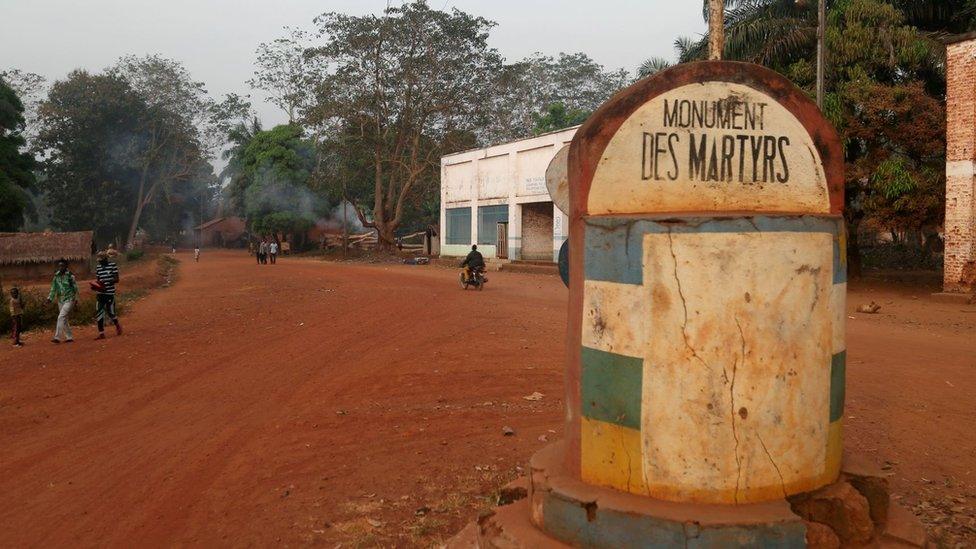Central African Republic rebels seize Bangassou, says UN
- Published

Bangassou, pictured the month before it was seized, is on the border with DR Congo
Rebel forces have seized a south-eastern city in the Central African Republic, an official from the country's United Nations mission says.
The rebels staged a dawn raid and were now everywhere in Bangassou, the official said, adding that fighting is continuing in several parts.
A rebel coalition has attacked several towns in recent weeks, and currently controls two thirds of the country.
They accuse the government of holding a fraudulent election on 27 December.
The government has denied allegations of poll rigging. Initial results of the election for president and seats in the national assembly are expected on Monday.
The authorities have also accused former President François Bozizé, who supports the rebels, of trying to stage a coup - something he has denied.
The Central African Republic (CAR) is resource-rich but deeply unstable country that has seen several coups since independence from France 60 years ago.
BBC Africa editor Mary Harper says there seems to be no let up in rebel activity.
On Saturday, the rebel coalition attacked the town of Damara, which is about 70km (43 miles) north of the capital Bangui.
2003Rebel leader and former army commander Francois Bozizé seizes power
2009UN Security Council agrees to creation of UN peace-building office for CAR to address ongoing insecurity
2013Bozizé flees into exile as Seleka rebel coalition rapidly overruns the country and takes control of the capital
2015Referendum on constitutional changes in November, followed by first round of presidential election
2019Bozizé returns to CAR
The CAR is one of Africa's poorest countries, even though it is rich in resources like diamonds and uranium. The UN, which has nearly 13,000 peacekeepers on the ground, estimates that half of the population are dependent on humanitarian assistance.